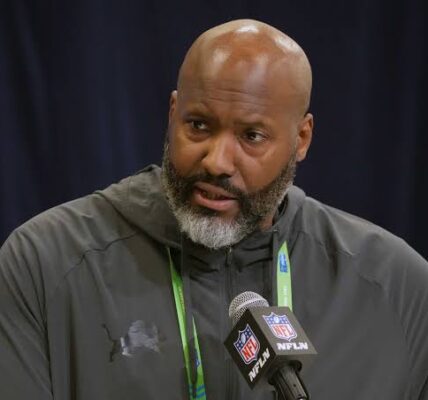The restoration and reopening of Detroit’s abandoned train station represents more than just a construction effort.
The $950 million project, funded by Ford Motor Co., marks a significant part of Detroit’s revitalization, which is seeing growth for the first time since the 1950s. The Ford family transformed the station, once a symbol of the city’s decline, into a new tech hub for the company. This mixed-use development aligns with a high point for the family’s Detroit Lions, who have reached the postseason in consecutive years for the first time since 1994-1995 and are aiming for their first Super Bowl appearance, despite winning the NFL championship in 1957. The team faces the Washington Commanders this Saturday.
“I was two years old the last time the Lions did well, and that was in 1957,” Leon LaBrecque, a tax attorney and strategic consultant for Ford Motor Co., said in a phone interview. “The city’s enthusiasm and vibrancy match the economic and sports recovery we’re experiencing.”
The Lions’ resurgence under head coach Dan Campbell has been one of the NFL’s standout stories this year. Quarterback Jared Goff and the team won their second consecutive division title, secured the No. 1 seed in the NFL, and are favorites to reach the Super Bowl—a scenario that seemed impossible three years ago when the team only won three games.
Though the Ford family has owned the Lions since President John F. Kennedy’s assassination (the team is currently led by principal owner Sheila Ford Hamp), their primary business remains in the auto industry. Ford Hamp’s great-grandfather, Henry, founded the company in 1903. Mark Rushbrook, global director of Ford Performance, is focusing on the company’s next major move: a return to Formula 1 next year in partnership with Red Bull Racing. (Red Bull’s current engine partnership with Honda ends this year.)
“Our reputation is at stake,” Rushbrook said in a video interview. “We have a lot to prove, and the spotlight will intensify 14 months from now. What we learn from Formula 1 will be applied to improve our cars and trucks for customers. Not every program aligns with our core values, but this one does.”
Ford is rejoining Formula 1 for the first time since 2004, when it sold the Jaguar racing team to Red Bull, an energy drink company that also owns MLS’ New York Red Bulls. With star driver Max Verstappen, Red Bull has become one of the top teams in the modern era of Formula 1, a sport recently boosted in popularity in the U.S. thanks to Netflix’s Drive to Survive. F1’s fan base has surged since the series’ debut in 2019.
Ford will be the only American manufacturer in Formula 1 next season. Previously uninterested in returning to F1, several factors influenced the company’s decision, including the upcoming rule changes, which introduce new power units and aerodynamic regulations, and the expanding U.S. fan base.
NFL Commissioner Roger Goodell also praised F1’s global strategy and fan engagement at Liberty Media’s investor day in November.
Rushbrook, tasked by Ford CEO Jim Farley with leading the company’s F1 initiative, is focused on the new chapter. Still, he acknowledges the enthusiasm surrounding Ford’s other sports venture. He noted that working alongside general manager Will Ford III, the son of executive chairman Bill Ford, gives him a broader view of the family’s passion for sports.
“They want to succeed in both motorsports and with the Detroit Lions,” Rushbrook said. “The recent success of the team is palpable, and Ford employees are rallying behind them. It’s a stark contrast to some more challenging years, and the energy now is truly exciting.”
Despite the Lions’ revival and the F1 re-entry, analysts have raised concerns about Ford’s future stock performance, especially given the ongoing challenges in the automotive sector. Still, Ford continues to perform well in certain areas, recently reporting its best annual sales since 2019 with over 2 million vehicles sold.
The Ford family retains control of Ford Motor Co. through Class B shares, which hold voting rights. However, these shares only represent 2% of the total stock, even though they give the family 40% of the voting power. In contrast, the Lions are valued at $4.9 billion according to the latest NFL valuations from Sportico.
Despite these concerns, Detroit’s mood remains optimistic. The Ford family generally avoids the spotlight in football, unlike other high-profile owners like Jerry Jones in Dallas. However, their sports successes are turning heads as the city continues to reinvent itself.
“Detroit has faced many challenges but also many moments of rebirth,” LaBrecque, who worked on the city’s 2013 bankruptcy, said. “And the Ford family is a key part of that.”



